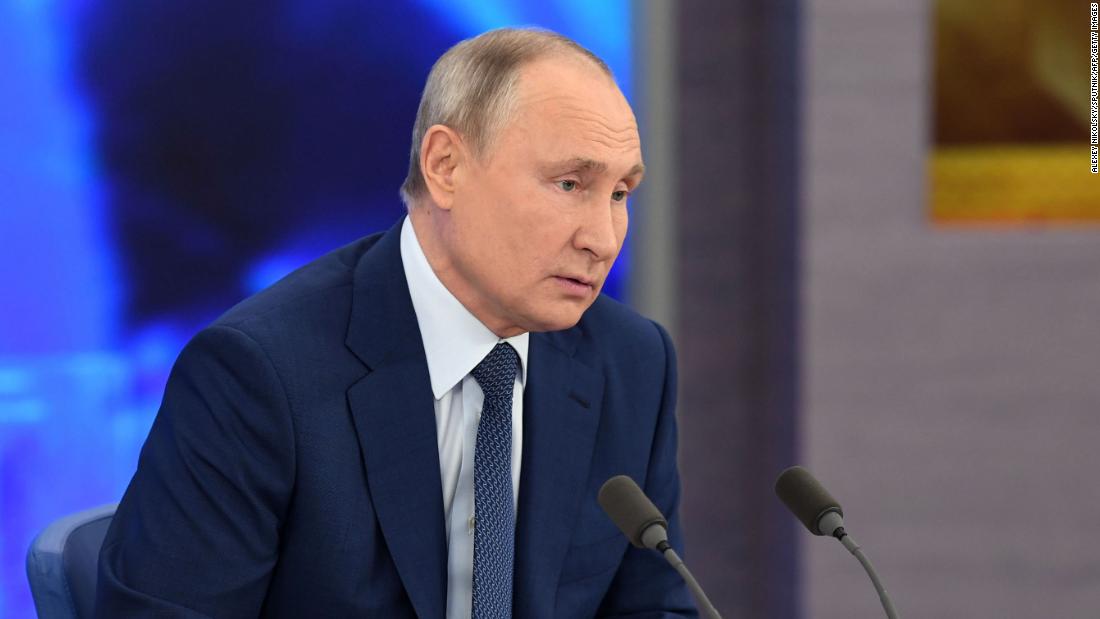


In a meeting with the Security Council, Russian President Vladimir Putin announced that any conventional attack on his country supported by a nuclear power would be seen as a joint attack, indicating a lower threshold for the use of Russia's nuclear arsenal. A revised version of Moscow's nuclear doctrine now states that an attack from a non-nuclear power with involvement or support from a nuclear power would be considered an attack against the Russian Federation. This warning is likely aimed at deterring the West from providing further support to Ukraine in its ongoing conflict with Russia.
In a significant development that has raised global concerns, Russian President Vladimir Putin has announced a revised nuclear doctrine that lowers the threshold for the use of Russia's nuclear arsenal. This shift in policy comes amid the ongoing conflict in Ukraine and escalating tensions between Russia and NATO countries.
During a meeting with Russia's Security Council, Putin stated that any conventional attack on his country supported by a nuclear power would be seen as a joint attack. This means that Russia would consider any NATO involvement in the Ukraine conflict as a potential threat to its national security, justifying the possible use of nuclear weapons.
The revised version of Moscow's nuclear doctrine now explicitly states that an attack from a non-nuclear power with involvement or support from a nuclear power would be considered an attack against the Russian Federation. This new threshold significantly expands the potential scenarios in which Russia might resort to nuclear force.
Putin's warning is widely seen as an attempt to deter the West from providing further military support to Ukraine. By threatening to use nuclear weapons against NATO countries if they intervene, Russia hopes to prevent the conflict from escalating into a direct confrontation between nuclear powers.
Russia's nuclear policy has been a subject of international debate for decades. The country maintains one of the largest nuclear arsenals in the world, with an estimated 6,257 warheads. Its nuclear doctrine has traditionally been based on a "no first use" policy, meaning that Russia would not use nuclear weapons unless attacked with them.
However, Putin's recent statements suggest a shift towards a more aggressive posture. The new doctrine lowers the threshold for nuclear use, signaling a willingness to use these weapons in response to a wider range of threats.
1. What is the significance of Putin's nuclear warning?
A. It indicates that Russia is lowering the threshold for the use of nuclear weapons, expanding the potential scenarios in which they might be used.
2. Why is this a concern for the international community?
A. It increases the risk of nuclear escalation and could potentially lead to a devastating global conflict.
3. What is the West's response to Putin's warning?
A. NATO countries have condemned the statement, calling it irresponsible and dangerous. They have also reiterated their commitment to supporting Ukraine's sovereignty and territorial integrity.
4. What are the implications for the Ukraine conflict?
A. It could deter NATO from providing significant military support to Ukraine, potentially prolonging the conflict and increasing human suffering.
5. What can be done to de-escalate the situation?
A. The international community must engage in diplomatic efforts to defuse tensions, reduce the risk of nuclear escalation, and find a peaceful resolution to the conflict in Ukraine.

The leaders of five European countries, including PM Keir Starmer and Ukrainian President Volodymyr Zelensky, gathered in London to address the ongoing war in Ukraine. Starmer declared that Russian President Vladimir Putin is not serious about pursuing peace, while Zelensky thanked the US for imposing new sanctions on Russia. Outside of the summit, Ukrainians shared their experiences and fears of living in a warzone.

India and the US are on the verge of finalizing a trade deal, with both sides making significant progress and ironing out most issues. Union Minister of Commerce and Industry, Piyush Goyal, clarified that India will not succumb to pressure and will only enter into a deal that is fair and beneficial for both countries. Furthermore, Goyal emphasized that India's approach is driven by a long-term vision, rather than momentary pressure or deadlines.

Delhi Police has arrested two ISIS operatives who planned to carry out blasts during Diwali celebrations in South Delhi. The suspects were reportedly radicalised online and had conducted recce of busy locations to inflict maximum casualties. Police believe the accused were in touch with foreign handlers and are looking into potential links to Pakistan's ISI. Investigations are ongoing to determine if the suspects have attempted to recruit others in Delhi and Bhopal.

In recognition of World Polio Day, Navi Mumbai joined the global effort to eradicate the paralyzing and vaccine-preventable disease by hosting an End Polio Now Laser Display. This initiative, organized by the Rotary Club of Navi Mumbai Joy of Giving, in collaboration with various organizations, aims to raise awareness and support for the cause. Despite significant progress, vigilance and continued commitment are still crucial to achieve a polio-free world.

The US and Australia have signed a deal to boost cooperation on rare earths and critical minerals, with the goal of reducing dependence on China. Australian Prime Minister Albanese has pledged to invest billions in crucial projects in the next six months as part of the agreement. Trump also emphasized the importance of the Aukus defense pact with Australia and the UK, stating that it serves as a deterrent against China. The deal is now moving forward quickly, with only minor clarifications left to be made.

Top US officials, including Vice President JD Vance and Secretary of State Marco Rubio, have spoken out against the Israeli parliament's vote to annex the already-occupied West Bank. Vance called the vote a "stupid political stunt" that could harm ongoing efforts towards a ceasefire and peace deal. Rubio warned that the move could jeopardize President Trump's plan to end the conflict. Despite the Knesset's approval, both officials reiterated that it is not the policy of the US to support annexation of the West Bank by Israel.

Pannir Selvam, a 28-year-old Malaysian man, received the death sentence in Singapore after being convicted of drug trafficking. Pannir's family, who remember him as a playful and talented musician, were shocked to hear of his arrest and have been fighting for his release ever since. With Singapore's strict laws against drug trafficking, Pannir's fate now lies in the hands of the court.

The FBI announced the arrest of Cindy Rodriguez Singh, one of its 'top 10 most wanted fugitives', from India in connection with the murder of her six-year-old son. She was charged with Unlawful Flight to Avoid Prosecution and Capital Murder. Patel commended the Indian and US agencies for their coordination in the case and noted that this is the fourth '10 Most Wanted' fugitive arrested in the past seven months. Singh's son had severe health and developmental issues and she allegedly fled to India to avoid prosecution, but justice knows no borders and the FBI never gives up on those who harm the innocent.

In a significant move, the descendants of Netaji Subhas Chandra Bose have urged Prime Minister Narendra Modi to institute a tradition of hoisting the National Flag at the Red Fort every year, to commemorate the establishment of the Azad Hind Government on October 21. The Azad Hind Government, formed under Netaji's leadership, played a key role in the fight for India's independence during World War II. With the 82nd anniversary of its establishment approaching, this request holds even more significance in honoring the sacrifices made by the Azad Hind Fauj.

Prime Minister Narendra Modi spent Diwali in an unconventional manner, celebrating the festival of lights with Indian Navy personnel onboard the aircraft carrier INS Vikrant. During his visit, Modi praised the INS Vikrant as a symbol of Aatmanirbhar Bharat and also witnessed a stunning air power demo by MiG 29K fighter jets taking off and landing on the short runway of the aircraft carrier. Modi was also deeply moved by a special cultural performance by the sailors, dedicated to the success of the Indian Armed Forces. He ended the evening by joining in the tradition of Bara Khana with the naval personnel. On the next day, Modi joined a yoga session on deck and watched a spectacular steampast of warships and flypast by aircraft.